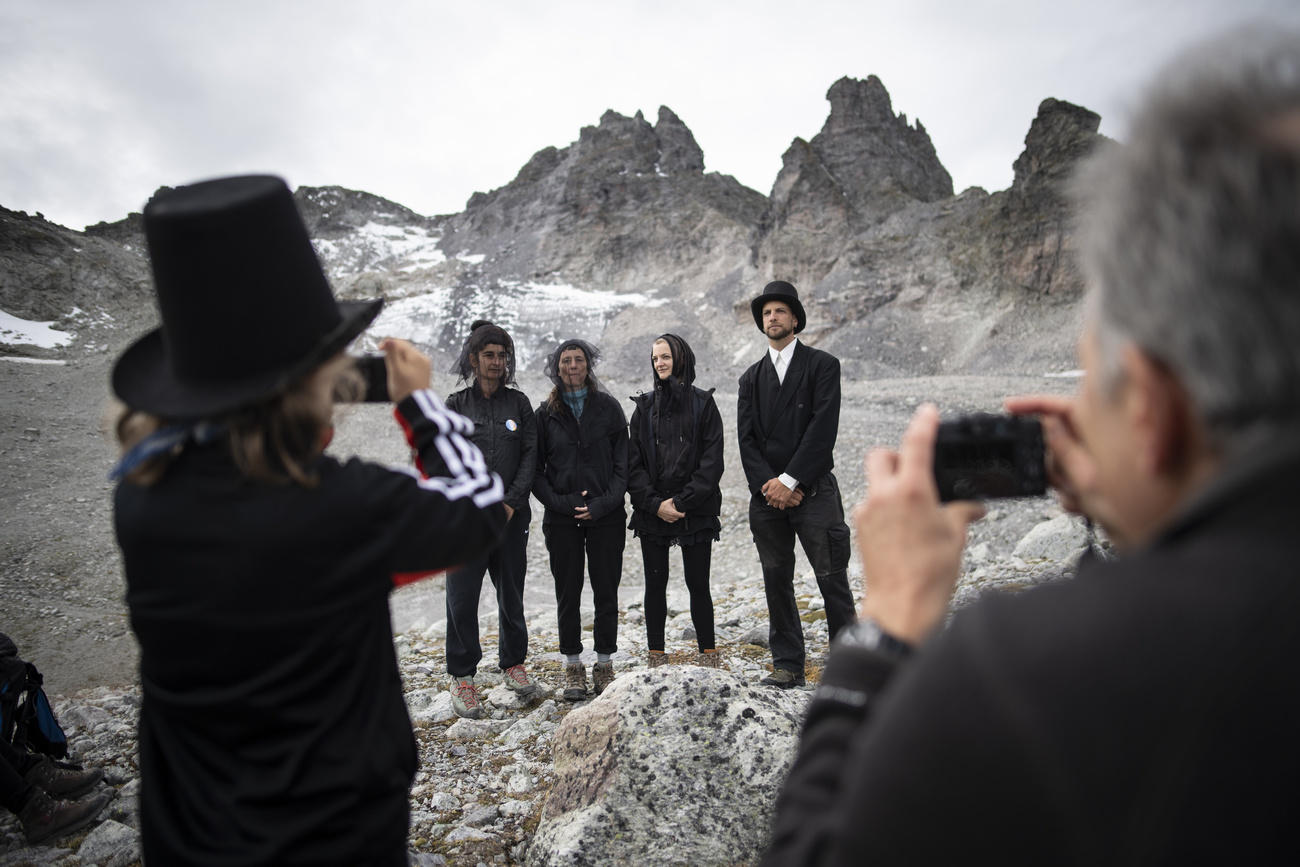
Vanishing Swiss glacier gets its own funeral procession

Following Iceland’s lead, the Swiss have organised a funeral march for the Pizol glacier in the eastern part of the country.
After a “funeral march” of about two hours, the participants, dressed in mourning clothes, reached the foot of the glacier at an altitude of around 2,700 metres near the border with Liechtenstein and Austria. A wreath was laid, but unlike the funeral of the Icelandic Okjökull glacier on August 18 no memorial plaque was left behind.
Pizol “has lost so much of its mass that, from a scientific point of view, it is no longer a glacier at all”, said Alessandra Degiacomi, of the Swiss Association for Climate Protection, one of the NGOs behind the funeral.
According to Matthias Huss, a glaciologist at the Swiss Federal Institute of Technology in Zurich, who took part in the ceremony, the Pizol glacier has lost up to 90% of its volume since 2006 and is now only the size of around four football fields. Huss estimates that more than 500 Swiss glaciers have completely disappeared since 1850, of which only 50 had a name.
“So the Pizol is not the first. But it can be considered as the first Swiss glacier to disappear that has been very well studied,” he said.
The Swiss Network of Glaciological Surveys (GLAMOS), classifies Pizol as a “glacieret”, i.e. very small glaciers, which constitute nearly 80% of the total number of Swiss glaciers. Located at a relatively low altitude (from 2,630 to 2,780 metres above sea level), it’s existence depended on large quantities of snow accumulated in winter.

In compliance with the JTI standards
More: SWI swissinfo.ch certified by the Journalism Trust Initiative





























You can find an overview of ongoing debates with our journalists here . Please join us!
If you want to start a conversation about a topic raised in this article or want to report factual errors, email us at english@swissinfo.ch.